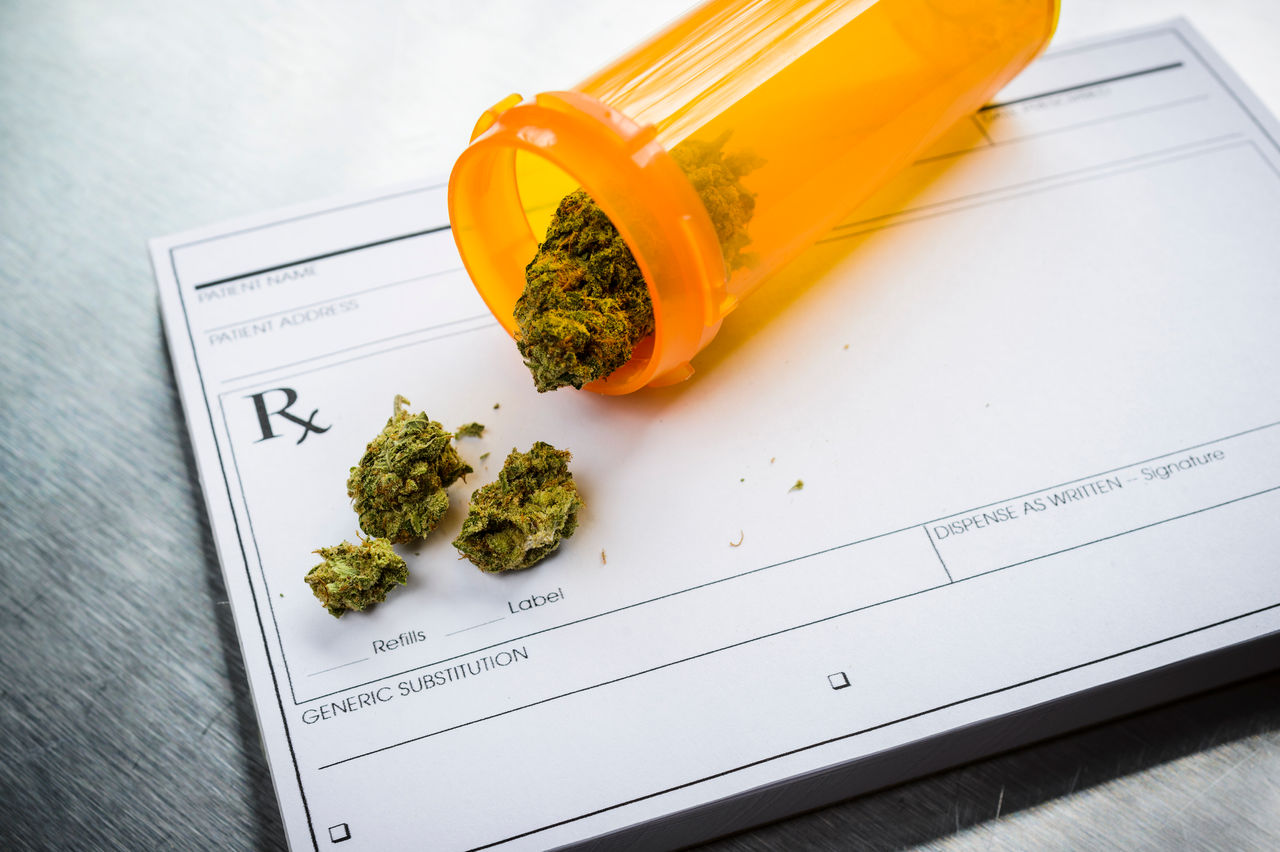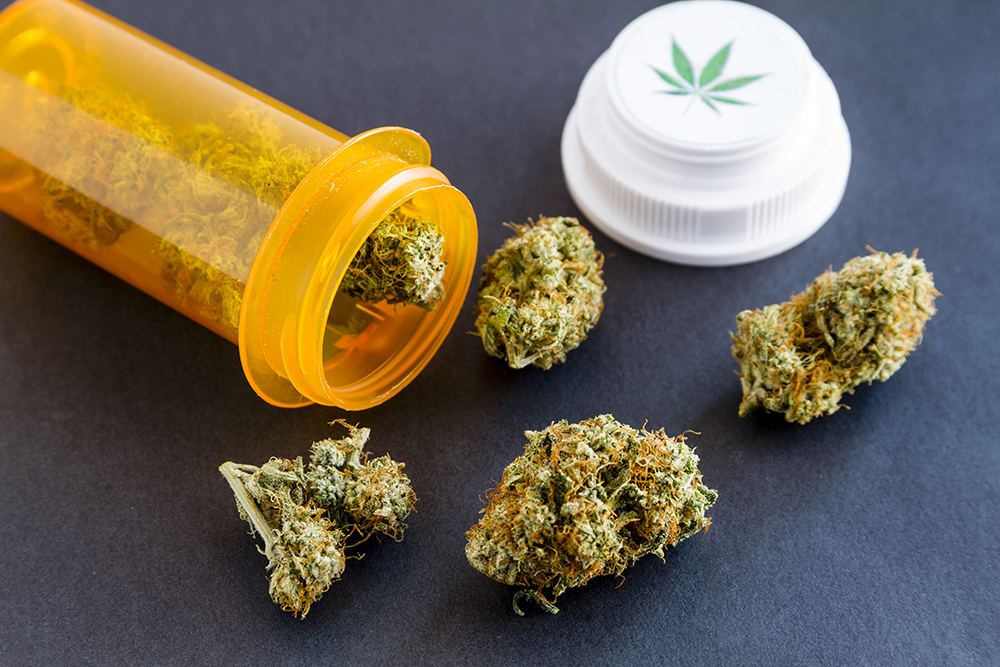Actions to Protect Your Medical Cannabis Card for Ideal Health Perks
Actions to Protect Your Medical Cannabis Card for Ideal Health Perks
Blog Article
Exploring the Diverse Use Medical Cannabis in Modern Medication
In the realm of modern medication, the exploration of clinical cannabis has unveiled a range of prospective applications that extend much beyond its typical use. From pain monitoring to neurological conditions, the flexibility of marijuana in attending to various health conditions has piqued the interest of health care professionals and scientists alike. As we navigate with the intricate landscape of clinical cannabis in modern health care, it becomes obvious that its varied uses hold assurance for innovative healing interventions.
Discomfort Administration
Discomfort management using clinical marijuana has actually garnered boosting focus in the field of health care as a result of its possible efficacy in providing relief for different kinds of intense and persistent discomfort problems. The cannabinoids present in clinical cannabis, especially tetrahydrocannabinol (THC) and cannabidiol (CBD), are recognized for their analgesic residential or commercial properties. These substances connect with the endocannabinoid system in the body, which plays an essential function in controling pain sensation.

As more research is conducted and regulations evolve, clinical marijuana might potentially play a more significant role in the multimodal approach to discomfort monitoring in health care.
Epilepsy Treatment
Exploring the efficacy of clinical cannabis in managing epilepsy has actually revealed encouraging outcomes in enhancing seizure control and quality of life for patients with treatment-resistant kinds of the problem. Epilepsy is a neurological condition defined by frequent seizures, affecting people of all ages. Typical therapies, such as antiepileptic medications and surgical procedure, might not constantly give sufficient relief for people with drug-resistant epilepsy. In recent times, study into the use of medical marijuana, particularly substances like cannabidiol (CBD), has gained focus for its potential healing benefits in epilepsy monitoring.
Studies have actually indicated that CBD, a non-psychoactive element of marijuana, might help in reducing seizure frequency and extent in certain sorts of epilepsy. The specific devices of how CBD communicates with the mind to control seizures are still being checked out. The existing data suggests that medical cannabis might be a beneficial enhancement to the treatment alternatives readily available for patients with refractory epilepsy. As further research study unfolds, the function of medical marijuana in epilepsy therapy remains to be an area of active exploration in the medical community.

Anxiety Relief
Research studies have demonstrated the potential of medical cannabis in providing relief for people experiencing anxiousness problems. Anxiousness is an usual psychological health and wellness problem that impacts countless people worldwide. Traditional therapies for anxiety, such as treatment and drug, might not always work for everyone. This has led scientists to discover alternative choices, consisting of clinical marijuana.
Marijuana includes compounds called cannabinoids, which connect with the body's endocannabinoid system. This system plays a critical function in regulating look at here now numerous physiological procedures, including mood and anxiety reactions. By targeting the endocannabinoid system, clinical marijuana may aid alleviate signs of stress and anxiety.
Researches have shown that specific cannabinoids, such as cannabidiol (CBD), have anxiolytic residential properties, implying they can reduce stress and anxiety degrees. CBD is non-psychoactive, unlike tetrahydrocannabinol (THC), one more cannabinoid located in cannabis. This makes CBD an encouraging option for people looking for anxiety alleviation without experiencing the copyright impacts generally related to marijuana use.
Cancer Signs And Symptom Control
Given the appealing effects of clinical marijuana on anxiety alleviation, its possible application in helping handle signs and symptoms related to cancer cells is a location see this of increasing passion among researchers and healthcare specialists. Cancer individuals frequently experience different traumatic symptoms such as pain, nausea or vomiting, loss of appetite, and sleeplessness as a result of the disease itself or the side impacts of treatment. Clinical marijuana, with its substances like THC and CBD, has actually revealed promise in minimizing these signs and symptoms.
Pain management is one of the most widely identified benefits of medical marijuana in cancer care. Researches have indicated that marijuana can assist decrease pain degrees, enhancing the quality of life for people going through cancer therapy.
Neurological Disorders Assistance

In epilepsy, for example, CBD has actually been studied for its possible to decrease the frequency and intensity of seizures in clients that do not respond well to typical anti-seizure medications. In a similar way, THC has actually shown pledge in reducing muscular tissue spasticity and pain in people with numerous sclerosis. Clients with Parkinson's illness have actually reported improvements in motor signs and symptoms such as tremblings and rigidity after making use of clinical cannabis.
While more study is needed to completely recognize the mechanisms and view publisher site long-lasting effects of medical marijuana on neurological problems, current evidence suggests that maybe an important enhancement to traditional treatment choices for people seeking symptom relief. (Medical Cannabis Clinic)
Conclusion
To conclude, medical marijuana has demonstrated its efficiency in different clinical applications, consisting of discomfort monitoring, epilepsy therapy, anxiousness alleviation, cancer cells signs and symptom control, and assistance for neurological problems. The varied uses medical cannabis in modern medicine highlight its potential as an important tool for healthcare professionals in improving client outcomes and lifestyle. Further research and expedition of its restorative advantages are required to fully understand and harness its medical homes.
Pain management utilizing clinical marijuana has gathered enhancing attention in the area of medical care due to its prospective effectiveness in offering relief for numerous kinds of chronic and acute pain conditions.Researches have actually shown encouraging outcomes concerning the use of clinical marijuana in minimizing neuropathic pain, joint inflammation, migraines, and other kinds of pain that are usually testing to treat with conventional medications. People who have actually not reacted well to conventional discomfort administration strategies might find alleviation with medical marijuana. As additional study unfolds, the role of clinical cannabis in epilepsy therapy continues to be a location of active exploration in the medical community.
In final thought, medical marijuana has shown its efficiency in numerous medical applications, consisting of pain administration, epilepsy treatment, stress and anxiety relief, cancer signs and symptom control, and support for neurological conditions. (Medical Cannabis Doctor)
Report this page